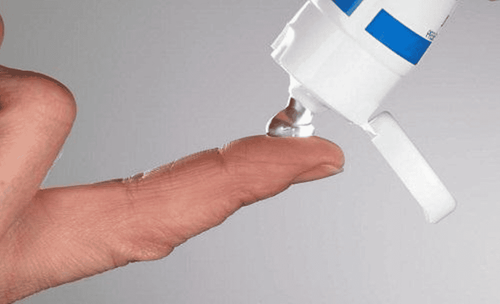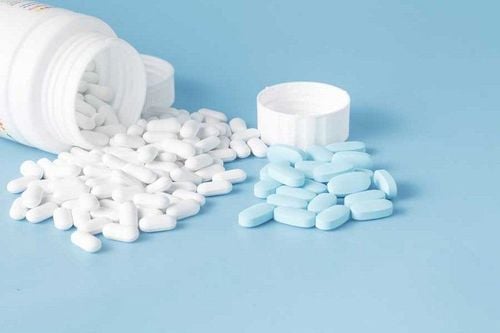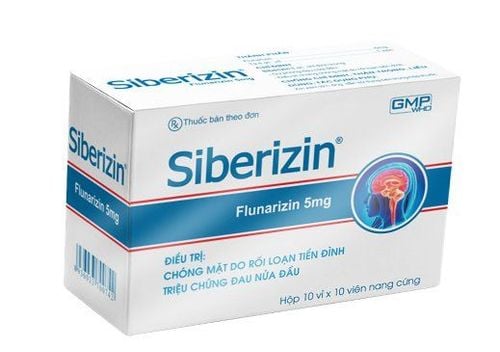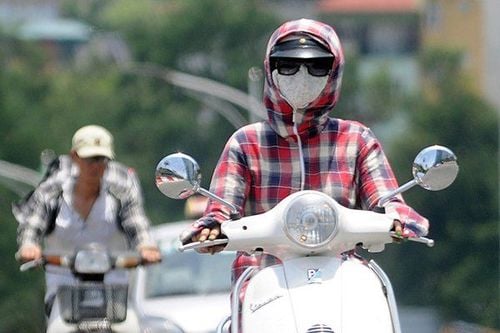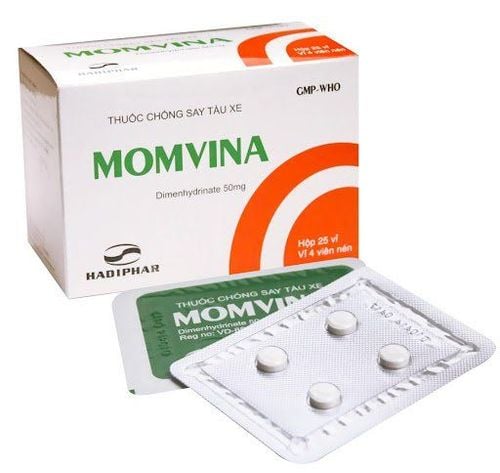This is an automatically translated article.
The article was professionally consulted with Doctor Cardiologist - Department of Medical Examination & Internal Medicine - Vinmec Hai Phong International General Hospital.
Hot weather is a favorable condition leading to stroke, especially those with a history of high blood pressure, diabetes, and high cholesterol. Heat stroke is completely preventable and prompt first aid if detected early.
1. Hot weather is a factor that increases stroke
In the hot summer, the number of stroke cases increases, this number will continue to increase when it is forecast that this year's hot weather will reach a record level.
When the temperature of the environment exceeds the body's tolerance threshold, it can lead to many dangerous events, even fatal stroke.
2. Those who are at high risk of heat stroke
Cases prone to stroke include: Infants and children under 4 years of age, elderly people aged 65 years and older, people with chronic diseases such as heart disease, lung disease, kidney disease, high blood pressure, diabetes , dyslipidemia, metabolic disorders, mental diseases, people with unhealthy lifestyles such as smoking, drinking too much alcohol, people who do not drink enough water,...
The elderly and children easily experiencing heat stroke events because this group of subjects adapts to temperature rise more slowly than others.
In addition, people living in urban areas have a higher risk of stroke than those residing in rural areas. The reason is because it is hot during the day, people in the city experience the urban effect, leading to the urban ambient temperature often rising higher than the weather temperature. Meanwhile, at night, a "heat island" phenomenon occurs, ie the temperature from the asphalt road and concrete radiates out, causing the evening temperature to drop more slowly than in the countryside.
With hot weather, the risk of stroke usually occurs when the outdoor temperature fluctuates from 32oC or higher. According to this temperature level, doctors have recommended not to be active outdoors, or to suddenly go outside while sitting in the air conditioner because it can easily lead to heat stroke and fatal stroke.
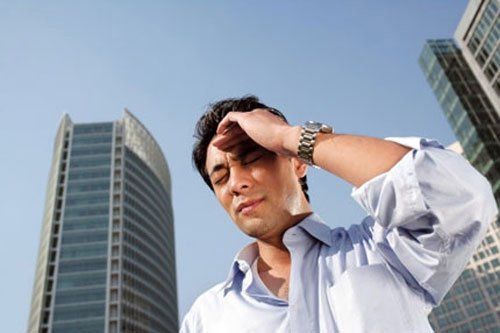
3. Symptoms of heat stroke
The most typical symptom is a high body temperature, sometimes up to 40oC, accompanied by fainting. There are also some other symptoms, including:
Headache Dizziness, dizziness. Not sweating, even though the body is very hot Red, dry, hot skin Cramps, numbness Nausea and vomiting Fast heartbeat Shallow breathing Behavior changes, such as mental confusion, disorientation convulsions, seizures Fainting, unconsciousness.
4. How to give first aid when having a heat stroke
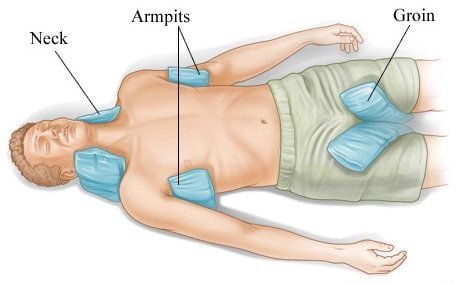
If you suspect a loved one or someone else is having a heat stroke, call 911 immediately or get the victim to the hospital as soon as possible.
While waiting for emergency, should take the victim to a cool shaded place, remove some clothes. If you find that the victim's body temperature is too hot, use all means to cool them down such as:
Use a fan to cool, apply a wet towel to the victim. Apply ice to the groin and armpit areas, because these are locations with many blood vessels close to the skin, when cooled can quickly reduce body temperature. Place the casualty in the bath and rinse with cool water.
5. Stroke prevention in the hot season
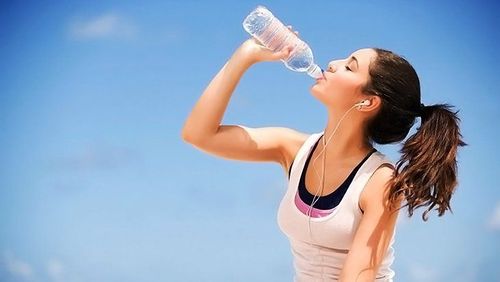
Summer is the peak of the heat, when the outdoor temperature is high, the elderly should limit going out, especially when the sun is hot, standing in the sun at noon.
For people with cardiovascular disease, it is recommended to use an air conditioner to cool down. When using an air conditioner, the temperature should only be controlled at about 27oC and the difference inside and outside the room should not exceed 7 degrees C.
In addition, hot weather causes the body to lose a lot of water, so It is important to regularly add enough water during the day. This will help increase the volume of body fluids, preventing the blood from thickening, leading to the formation of thrombus (blood clots).
Should practice the habit of drinking enough water when not thirsty, because most elderly people will not feel thirsty. You can supplement water through drinking fruit juice, eating additional vegetable and fruit soup every day. In particular, in the early morning after waking up, should drink a glass of water, every day should replenish enough from 2 liters of water for the body. If you have to exercise, you should drink 1 glass of water before exercising, and add water once every 20 minutes of vigorous exercise.
In the hot season, you should wear light, loose, light-colored clothes, avoid uncomfortable tights, wear a wide yellow hat and wear eye protection. When going out, need to apply sunscreen to protect the skin, with a sun protection factor of 30 SPF or higher. If not absolutely necessary, should cancel outdoor activities, should only go out in the early morning and late afternoon, when the outside is relatively cool.
Limit alcohol or coffee, because alcohol and caffeine will make the body lose more water, easily leading to the risk of heat stroke.
A stroke can happen at any time, not just in hot weather, and you should have a stroke screening if you notice any suspicious signs. Currently, Magnetic Resonance Imaging - MRI/MRA is considered a "golden" tool to screen for brain stroke. MRI is used to check the condition of most organs in the body, especially valuable in detailed imaging of the brain or spinal nerves. Due to the good contrast and resolution, MRI images allow to detect abnormalities hidden behind bone layers that are difficult to recognize with other imaging methods. MRI can give more accurate results than X-ray techniques (except for DSA angiography) in diagnosing brain diseases, cardiovascular diseases, strokes,... Moreover, the process MRI scans do not cause side effects like X-rays or computed tomography (CT) scans.\
Vinmec International General Hospital currently owns a 3.0 Tesla MRI system equipped with state-of-the-art equipment by GE. Healthcare (USA) with high image quality, allows comprehensive assessment, does not miss the injury but reduces the time taken to take pictures. Silent technology helps to reduce noise, create comfort and reduce stress for the client during the shooting process, resulting in better image quality and shorter imaging time. With the state-of-the-art MRI system With the application of modern methods of cerebral vascular intervention, a team of experienced and well-trained neurologists and radiologists, Vinmec is a prestigious address for stroke risk screening and screening. reliable goods.
In the past time; Vinmec has successfully treated many cases of stroke in a timely manner, leaving no sequelae: saving the life of a patient suffering from 2 consecutive strokes; Responding to foreign female tourists to escape the "death door" of a stroke;...
Please dial HOTLINE for more information or register for an appointment HERE. Download MyVinmec app to make appointments faster and to manage your bookings easily.




